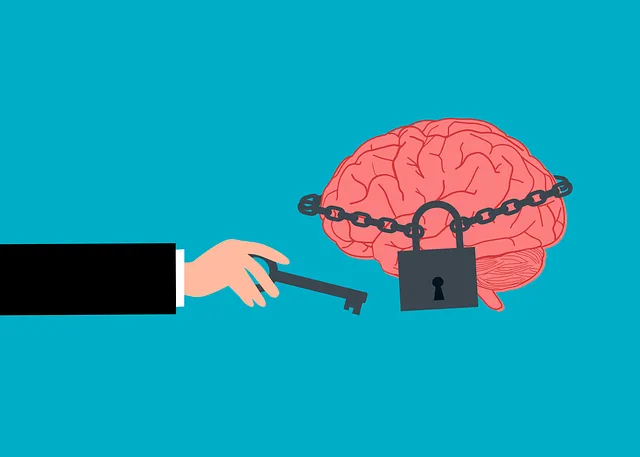The Littleton Kaiser Permanente mental health appointment center employs comprehensive risk management strategies that go beyond physical safety, focusing on patient well-being, staff safety, and operational continuity. By proactively addressing risks like staff stress, data security, and treatment effectiveness, the center creates a supportive environment through evidence-based practices, including emotional intelligence development, effective communication, stigma reduction, and work-life balance initiatives. Continuous monitoring and improvement ensure optimal care delivery, fostering resilience and trauma support services while adapting to emerging trends and patient needs.
Mental health professionals are on the front line of critical care, making risk management an indispensable component of their practice. This article explores a structured approach to risk assessment and mitigation tailored specifically for the unique environment of the Littleton Kaiser Permanente mental health appointment center. By understanding key risks and implementing robust strategies, healthcare providers can ensure patient safety, enhance clinical outcomes, and foster a resilient therapeutic space.
- Understanding Risk Management in Mental Health Settings
- Identifying Potential Risks at Littleton Kaiser Permanente Appointment Center
- Developing a Comprehensive Risk Assessment Framework
- Implementing Effective Risk Mitigation Strategies
- Continuous Monitoring and Improvement for Enhanced Patient Safety
Understanding Risk Management in Mental Health Settings

In mental health settings, risk management goes beyond ensuring a safe physical environment. It’s a strategic approach to predict, mitigate, and respond to potential risks that impact patient well-being, staff safety, and operational continuity. At centers like the Littleton Kaiser Permanente mental health appointment center, professionals recognize that effective risk management is crucial for fostering a supportive and therapeutic atmosphere. By adopting a proactive mindset, practitioners can create a framework that addresses various hazards, from emotional triggers during therapy sessions to potential crises among vulnerable populations.
This involves enhancing confidence-boosting measures, cultivating emotional intelligence, and implementing robust communication strategies. Mental health professionals must be adept at recognizing subtle cues of distress in patients, colleagues, or themselves, promptly addressing issues that could escalate. By integrating these skills into daily practice, risk management becomes an integral part of delivering quality care, ensuring the safety of all involved, and fostering a resilient mental health appointment center environment.
Identifying Potential Risks at Littleton Kaiser Permanente Appointment Center

At the Littleton Kaiser Permanente Appointment Center, dedicated to mental health services, identifying potential risks is an integral part of comprehensive risk management planning. This process involves a careful assessment of various factors unique to the center and its patient population. For instance, the high volume of patients seeking therapy can lead to increased stress among staff and potentially longer wait times, impacting patient satisfaction. Additionally, given the sensitive nature of mental health issues, privacy breaches or data security lapses could have severe consequences for both patients and the reputation of the facility.
Risk assessment at this center also considers the diverse range of services offered, including individual therapy, group support sessions, and specialized programs such as Social Skills Training and Self-Awareness Exercises. These interventions, while beneficial for mental wellness, require careful monitoring to ensure effectiveness and safety. Identifying potential risks associated with these services allows for proactive measures, ensuring a secure and supportive environment where patients can prioritize their mental health without worry.
Developing a Comprehensive Risk Assessment Framework

At the Littleton Kaiser Permanente mental health appointment center, a robust risk management strategy begins with a comprehensive risk assessment framework. This involves meticulously evaluating each patient’s unique circumstances, including their medical history, current psychiatric state, social determinants of health, and any pertinent lifestyle factors. By employing evidence-based tools and methodologies, mental health professionals can identify potential risks associated with various mental illnesses, such as depression prevention challenges, and develop tailored interventions accordingly.
The framework should incorporate strategies to address not only acute risk scenarios but also long-term mental wellness promotion. This includes integrating stigma reduction efforts into treatment plans, as the mental illness stigma can significantly impact a patient’s recovery journey. By fostering an inclusive environment and implementing educational initiatives, healthcare providers at Littleton Kaiser Permanente aim to normalize conversations around mental health, thereby encouraging early interventions and improved outcomes for all patients.
Implementing Effective Risk Mitigation Strategies

Implementing effective risk mitigation strategies is paramount for mental health professionals to maintain a healthy work-life balance and ensure the well-being of their patients at the Littleton Kaiser Permanente mental health appointment center. The first step involves recognizing potential risks, such as heavy caseloads, emotional strain from high-stress cases, or even burnout. Once identified, these risks can be proactively managed through various strategies.
Stress reduction methods like mindfulness, meditation, and regular physical activity can significantly enhance professionals’ resilience to stress. Confidence boosting techniques, incorporating constructive feedback and continuous learning opportunities, empower healthcare providers to navigate challenging situations effectively. Additionally, burnout prevention strategies for healthcare providers, including structured time management and clear boundaries between work and personal life, are essential components of a robust risk management plan.
Continuous Monitoring and Improvement for Enhanced Patient Safety

At the Littleton Kaiser Permanente mental health appointment center, continuous monitoring and improvement are integral components of risk management planning. This involves regularly reviewing patient outcomes, identifying areas for enhancement, and implementing data-driven strategies to optimize care delivery. By fostering a culture of resilience building and trauma support services, the center ensures that both professionals and patients can navigate challenges effectively, enhancing overall safety and well-being.
Through ongoing assessment and feedback mechanisms, mental health professionals at Littleton Kaiser Permanente stay abreast of emerging risks and trends. This proactive approach enables them to adapt practices, ensuring that evidence-based interventions are up-to-date and tailored to meet the evolving needs of patients. Such continuous monitoring not only strengthens risk management planning but also contributes to a dynamic environment where resilience is cultivated, and trauma support services are readily accessible.
Mental health professionals at the Littleton Kaiser Permanente Appointment Center must embrace robust risk management planning to ensure patient safety and effective care. By understanding the unique risks inherent in this setting, conducting thorough risk assessments, implementing tailored mitigation strategies, and continuously monitoring for improvements, practitioners can create a secure environment conducive to healing. Adopting these measures is not only beneficial for individual patients but also contributes to the overall reputation and success of the Littleton Kaiser Permanente mental health appointment center.






